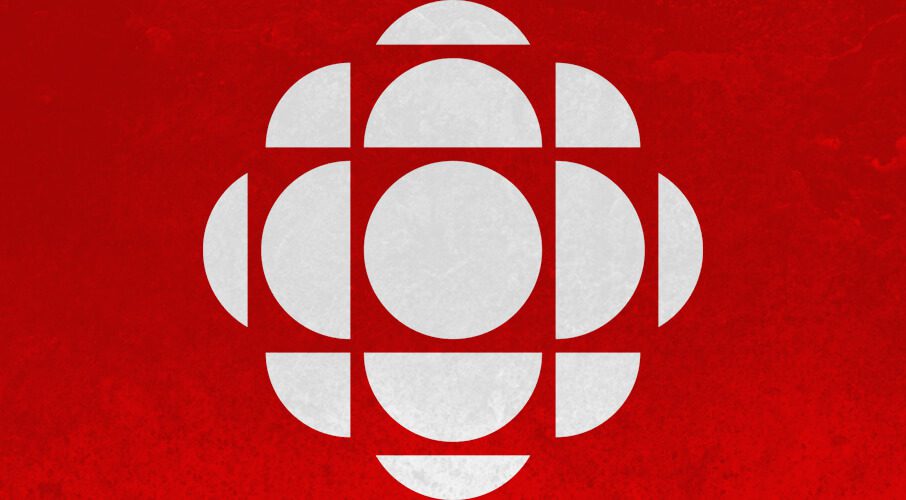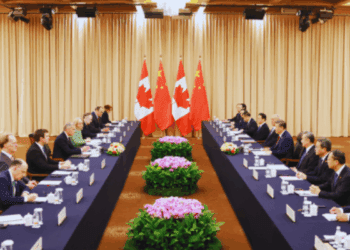This article originally appeared in the Toronto Star.
By Peter Menzies, January 12, 2024
Heritage Minister Pascale St-Onge has taken a welcome first step in calling for a mandate review of the CBC but she needs to move decisively if the once-cherished institution is to regain Canadians’ widespread support.
Reform isn’t just necessary for the corporation to survive a possible (some might even say pending) change in government. A restructured CBC is fundamental to the creation of a healthy news ecosystem within which Canada’s private media sector can thrive in the digital age.
CBC/Radio Canada is by far the nation’s largest news organization. It operates multiple networks in both official languages while CBC North serves territorial audiences with programming in Chipewyan, Cree (East Cree), North and South Slavey, Gwich’in, Inuktitut, Inuvialuktun, and Tlicho.
Radio Canada International, which functions these days much like an ethnic radio/streaming service, competes for listeners in five unofficial languages — Spanish, Chinese, Punjabi, Arabic and Tagalog.
Despite polls showing lessening enthusiasm for its work and poor TV ratings, CBC’s website is by far the most accessed Canadian news platform, local radio programming is popular and, as pointed out by St Onge recently, the corporation employs roughly one in three of the country’s working journalists.
That’s a lot of heft — so much that every time it shifts direction it has an impact on the entire news ecosystem. In receiving $1.3 billion in annual federal subsidy while maintaining the freedom to sell advertising, this massive corporation no longer fits the description of a public broadcaster.
It is a publicly funded commercial news and entertainment organization — a frankenstreamer — which every year leaves less room for others in the news business. How healthy, after all, can any industry be when its playing field is so severely distorted by government funding in favour of one team?
This is where St-Onge — and whatever panel it is that she appoints to examine the Mother Corp’s mandate — should start. The Heritage Minister needs to turn the CBC back into a pure play public broadcaster that doesn’t have to care what its numbers are in major markets for the purpose of exploiting their commercial value with advertisers.
She needs one that doesn’t need to obsess over American news in order to compete with CNN or worry about how many clicks its website is driving in order to hit revenue targets. Its executives wouldn’t have to worry about rate cards or how to position the brand and further develop “sponsored content” through vehicles such as Tandem. No more need to schmooze with clients.
Everyone there would just have to worry about serving the public with fair, accurate and balanced news — something its critics say it lacks.
St-Onge told Canadian Press that she’d like CBC to start filling in regional “information gaps,” while maintaining a strong online presence, bolstering international coverage and ensuring “support” for minority language communities, which presumably means anglophones in Quebec and francophones in Canada rather than unofficial language speakers.
Worthy goals perhaps, but more of a shopping list that involves a debate in which St-Onge should avoid getting bogged down. If she wants to help protect CBC in the event Pierre Poilievre’s Conservatives win the next election, she needs to be bold and embrace structural change for an organization besieged on two key fronts.
One is political. Few things warm up a crowd of Conservatives better these days than when Poilievre vows to “defund the CBC.”
The other is industrial. Few things irk private media more than government funding the CBC as their commercial competitor.
Right now, those are St-Onge’s two biggest problems. Helping the CBC avoid being the centre of political controversy is a project that, even if possible, would take years.
What she can do, and time is of the essence for the Liberals, is concentrate on a new, streamlined structure for a CBC focused on being nothing other than a public broadcaster & commercial-free online platform.
That, at least, will solve one problem.
Peter Menzies is a senior fellow with the Macdonald-Laurier Institute, a past vice chair of the CRTC and a former newspaper executive.






